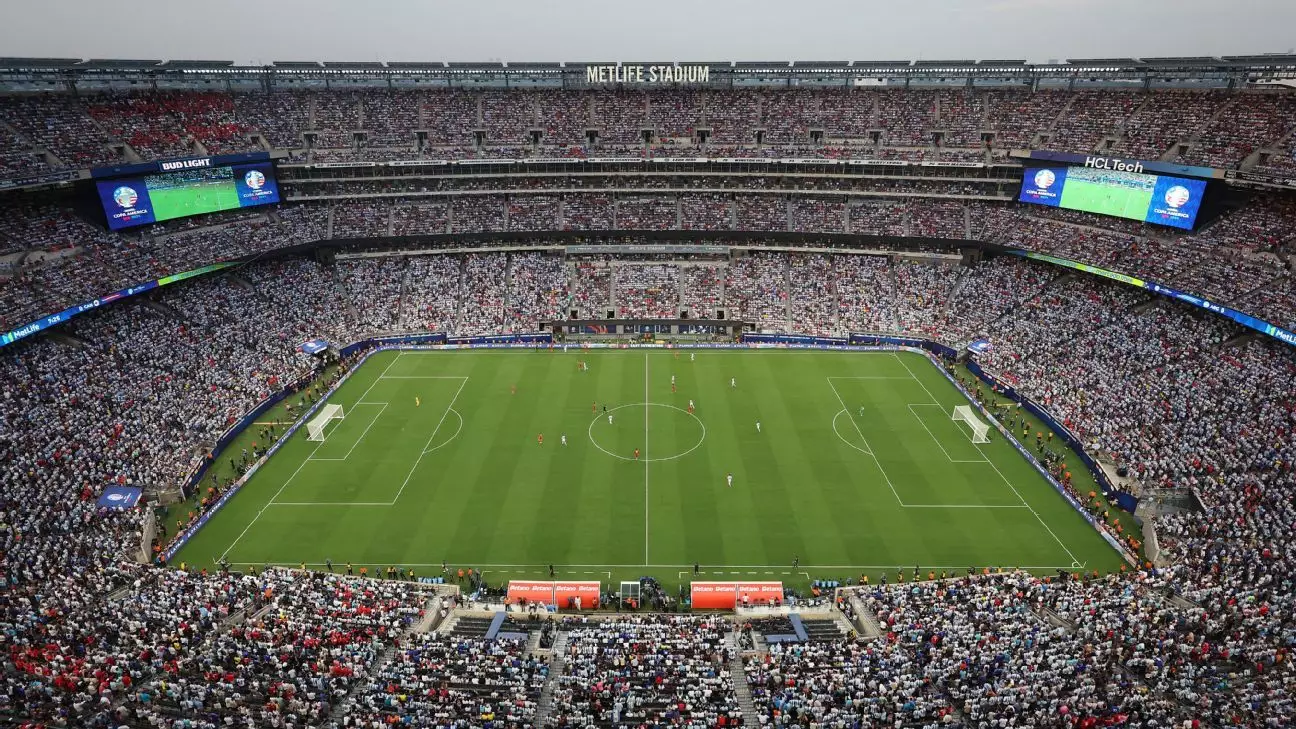In an effort to protect fans from potential scams, FIFA has issued a strong warning against purchasing tickets for the 2026 World Cup from unofficial ticketing sites. This announcement comes amidst an increasing number of advertisements on secondary markets, raising alarm bells for those eager to secure their seats for what promises to be a monumental sporting event. FIFA’s proactive stance reflects a broader concern regarding the integrity of ticket sales, particularly in light of past experiences with unauthorized ticket vendors.
FIFA has made it clear that tickets for the upcoming tournament will not be available until late 2025, asserting that any listings on secondary platforms are premature and unofficial. While hospitality packages will be released by the end of 2024, individual tickets remain tightly controlled by FIFA. Promoting clarity, the organization emphasized that all ticket sales for the 2026 World Cup will occur exclusively through FIFA’s official website, FIFA.com/tickets. This initiative is designed to keep ticket purchasing processes straightforward and secure, but it also highlights the risks associated with engaging with unofficial sources.
For fans looking to attend the World Cup, FIFA urged them to stay prudent and utilize authentic methods for purchasing tickets. By registering at FIFA.com, fans can receive updates and information regarding ticket applications and sales. This approach not only ensures that supporters remain informed but also empowers them with the knowledge necessary to avoid falling victim to fraudulent schemes. The organization’s emphasis on education as a prevention method underscores the importance of vigilance in an era rife with online scams.
While FIFA has not disclosed whether it will pursue legal action against unauthorized ticket sellers this time around, its history suggests a zero-tolerance approach to such infractions. Previously, FIFA took a stance against viagogo AG, a resale site implicated in selling counterfeit tickets during the 2018 World Cup in Russia. Their actions were part of an effort to maintain fair practices in ticket distribution, showcasing FIFA’s commitment to upholding the integrity of their events against unscrupulous entities.
The challenges of the secondary ticket market extend beyond FIFA. The U.S. Department of Justice is currently investigating the entire ticket resale landscape, having launched an antitrust lawsuit against Ticketmaster and its parent company, Live Nation Entertainment. These legal proceedings reflect growing concerns about monopolistic practices that potentially harm consumers, as ticket prices often inflate due to lack of competition. As the government scrutinizes these practices, it is clear that fans are grappling with a complex ecosystem of ticketing that demands caution and awareness.
While excitement builds for the 2026 World Cup, FIFA’s cautionary message serves as a crucial reminder for fans to rely solely on official sources for tickets. Awareness and vigilance are essential in navigating the potentially treacherous waters of ticket sales—where genuine enthusiasm can easily turn into disappointment if scams go unchecked.

